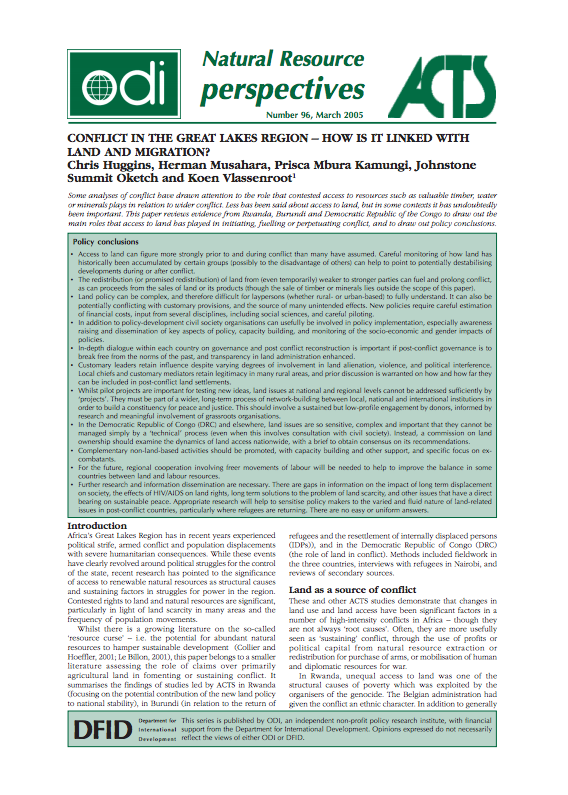Resource information
Africa’s Great Lakes Region has in recent years experienced
political strife, armed conflict and population displacements
with severe humanitarian consequences. While these events
have clearly revolved around political struggles for the control
of the state, recent research has pointed to the significance
of access to renewable natural resources as structural causes
and sustaining factors in struggles for power in the region.
Contested rights to land and natural resources are significant,
particularly in light of land scarcity in many areas and the
frequency of population movements.
Whilst there is a growing literature on the so-called
‘resource curse’ – i.e. the potential for abundant natural
resources to hamper sustainable development (Collier and
Hoeffler, 2001; Le Billon, 2001), this paper belongs to a smaller
literature assessing the role of claims over primarily
agricultural land in fomenting or sustaining conflict. It
summarises the findings of studies led by ACTS in Rwanda
(focusing on the potential contribution of the new land policy
to national stability), in Burundi (in relation to the return of
refugees and the resettlement of internally displaced persons
(IDPs)), and in the Democratic Republic of Congo (DRC)
(the role of land in conflict). Methods included fieldwork in
the three countries, interviews with refugees in Nairobi, and
reviews of secondary sources

